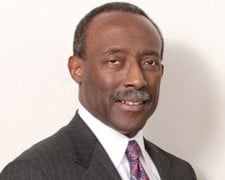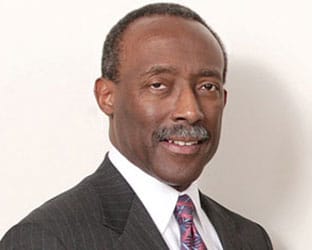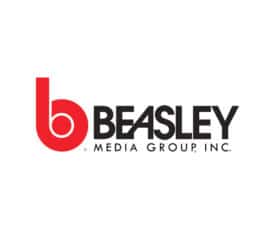 On 1/23 Target Market News broke the story that DOJ and the largest tobacco companies had negotiated a consent order in the long running litigation between DOJ and Philip Morris, RJ Reynolds, and Lorillard, in the U.S. District Court for the District of Columbia. The proposed consent order provides the details of an advertising program the tobacco companies have been directed to air to provide the public the truth about the negative health effects of using tobacco products. The consent order creates a national advertising campaign, writes NABOB Executive Director Jim Winston in a statement. But the national ad campaign directs no advertising dollars to the African American community, even though for decades our community has been heavily targeted by the tobacco companies’ misleading ads promoting smoking and hiding the truth about the potential negative health effects.
On 1/23 Target Market News broke the story that DOJ and the largest tobacco companies had negotiated a consent order in the long running litigation between DOJ and Philip Morris, RJ Reynolds, and Lorillard, in the U.S. District Court for the District of Columbia. The proposed consent order provides the details of an advertising program the tobacco companies have been directed to air to provide the public the truth about the negative health effects of using tobacco products. The consent order creates a national advertising campaign, writes NABOB Executive Director Jim Winston in a statement. But the national ad campaign directs no advertising dollars to the African American community, even though for decades our community has been heavily targeted by the tobacco companies’ misleading ads promoting smoking and hiding the truth about the potential negative health effects.
More from Winston’s released statement:
On 1/15, NABOB says it wrote to Attorney General Eric Holder asking him to review the consent order proposed by the DOJ. In the letter, NABOB explained that the consent order requires the tobacco companies to air commercials that contain “corrective statements” informing the public of the harmful effects that smoking causes. NABOB pointed out that, in the litigation, it was demonstrated that the tobacco companies had specifically targeted African American communities, particularly young people, with advertising and promotions designed to increase smoking. Yet, the proposed consent order requires that the corrective commercial campaign be run exclusively on ABC, CBS, NBC, and 35 newspapers, including some Spanish language newspapers. The consent decree does not obligate the tobacco companies to place any commercials on Black owned media, or even media targeting the African American community. We asked Attorney General Holder to have his Department revise the consent decree to specifically require the tobacco companies to advertise on Black owned media.
On 1/17, NABOB was invited by the National Newspaper Publishers Association (NNPA) to join in filing an amicus brief advising the court of the need to use Black owned media to effectively reach and inform the African American community. NABOB and NNPA requested that our members be added to the media included in the consent decree. On 1/21, the NAACP filed an amicus brief.
On 1/22, Judge Gladys Kessler held a status conference. Judge Kessler noted that the settlement that the DOJ and tobacco companies have offered to her for approval raises a number of concerns that she plans to consider before deciding whether to approve the settlement. The first concern that the judge raised is whether the advertising plan in the settlement fails to target a significant part of the public. This is clearly the point that NABOB and NNPA raised in our amicus brief. While this does not mean that the judge is prepared to reject the settlement and direct the tobacco companies to revise the plan to target the African American community, it does mean that she has not ruled out such a result. The judge gave all interested parties until February 18th to file additional comments on whether the proposed settlement will adequately reach all affected Americans. NABOB and NNPA will continue to press our case that the settlement must be rejected by the judge and be renegotiated to include Black owned media in the advertising campaign.
The settlement can be set aside and the parties can be forced to consider adding Black owned media to the advertising plan if DOJ tells the judge that it agrees with her that the plan needs to be amended to target Black consumers. The DOJ will only change its position and oppose the current advertising plan if there is a vocal outcry from the African American community. Right now the African American community does not know about this issue.
“Therefore, we need all Black owned stations to discuss this story on your airwaves. Please invite me, your local members of Congress, your local NAACP chapter, and anyone else who is knowledgeable about this issue to come on your station to discuss it. The Black community has suffered greatly from tobacco related diseases because we were targeted for promotion of smoking, particularly young people in our community.
It is imperative that our community receives a substantial amount of the advertising designed to correct decades of misinformation. New young people in our community continue to begin smoking daily. We must get a significant portion of the advertising campaign on our stations so that we can help to stop the growth of smoking in our community.
We must get the word out. Please contact me with questions or ideas you have for bringing this issue to the attention of the public. (202) 463-8970 or at [email protected].
RBR-TVBR observation: This is not the first time NABOB has pointed out its struggle to get government ad dollars for black-owned broadcasters. Last June, NABOB asked why more of the hundreds of millions in public dollars aren’t going to African-American owned TV and radio stations. The group started targeting federal agencies that approve the allocation of ad budgets to change this disparity. NABOB asked its members to contact their members of Congress.
A 2012 Congressional Research Service report, “Advertising by the Federal Government: An Overview,” estimated that the federal government spent $750.4 million on commercial advertising services in fiscal year 2011.
“Of these expenditures, Black owned broadcast stations and networks receive a very small share,” said Winston. “Many Black owned broadcast stations receive no federal ad dollars.”





